Science

The Week Junior Science+Nature UK
Hamza Yassin
Go behind the camera with a wildlife filmmaker.
3 min |
Issue 80
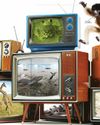
The Week Junior Science+Nature UK
WILDLIFE WATCH
Ben Hoare goes on a safari from his sofa to discover how nature documentaries are made.
4 min |
Issue 80
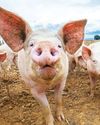
The Week Junior Science+Nature UK
Big bum breakthrough
A team of researchers who found out that mammals can breathe through their bottoms have won a prize at the lg Nobel awards.
1 min |
Issue 80
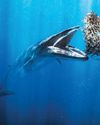
The Week Junior Science+Nature UK
A jaw-dropping undersea snap
A photograph of a Bryde's whale feeding on a heart-shaped \"bait ball\" of sardines has won the Ocean Photographer of the Year contest.
1 min |
Issue 80

The Week Junior Science+Nature UK
First private spacewalk
On 12 September, billionaire Jared Isaacman completed the first-ever spacewalk by a nonprofessional astronaut.
1 min |
Issue 80

The Week Junior Science+Nature UK
Bat-like robot clings to tree
Researchers have developed a special robot that can fly into trees and cling on.
1 min |
Issue 80

The Week Junior Science+Nature UK
Teenager spots rare moth's eggs in UK
A teenager who became the first person to find the eggs of a rare moth in the UK has been nominated for a national award.
1 min |
Issue 80

The Week Junior Science+Nature UK
Sunflowers work as a team to share sunlight
Research has found that sunflowers move to avoid blocking each other's sunlight.
2 min |
Issue 80

The Week Junior Science+Nature UK
Is gaming good for you?
Gaming is great fun, but some worry it could be bad for young people's health.
2 min |
Issue 79

The Week Junior Science+Nature UK
What are wormholes?
Find out if space has secret passages that give shortcuts through the universe.
3 min |
Issue 79
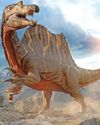
The Week Junior Science+Nature UK
TITANS
The biggest dinosaurs grew to truly epic proportions. Peter Gallivan tells the super-sized tale of these giant reptiles and discovers why they grew so large.
5 min |
Issue 79
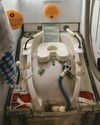
The Week Junior Science+Nature UK
Space toilets
Doing your business in space is not as easy as you might think.
2 min |
Issue 79
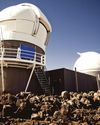
The Week Junior Science+Nature UK
A visitor from outer space
Scientists have spent years looking for alien life, but what if it found us first?
2 min |
Issue 79

The Week Junior Science+Nature UK
Gladys West
Meet the hidden figure behind the navigation system in your smartphone.
3 min |
Issue 79
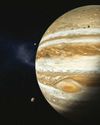
The Week Junior Science+Nature UK
JUPITER KING OF PLANETS
Blast off with BBC Sky At Night's Ezzy Pearson as she takes you on a voyage to explore the largest planet in our solar system.
6 min |
Issue 79

The Week Junior Science+Nature UK
Would you eat insects to save the planet?
Some say you should be eating beetles for breakfast and locusts for lunch.
3 min |
Issue 78

The Week Junior Science+Nature UK
Why are people allergic to things?
Find out why your body is sensitive to some substances.
2 min |
Issue 78

The Week Junior Science+Nature UK
WHIZ KIDS
Claire Karwowski asks what makes people tick and if there is a secret to being smart.
7 min |
Issue 78

The Week Junior Science+Nature UK
HEADSCRATCHERS
Seeking answers to your science questions? Ask our resident expert, Peter Gallivan
2 min |
Issue 78
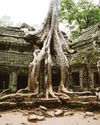
The Week Junior Science+Nature UK
Angkor Wat
Discover the many secrets surrounding this ancient site.
3 min |
Issue 78

The Week Junior Science+Nature UK
Big Manny
Meet social media's science sensation.
3 min |
Issue 78
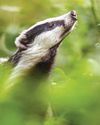
The Week Junior Science+Nature UK
KILLER INSTINCT
Step into the wild - if you dare - with JD Savage to discover how nature's ultimate predators use astonishing skills and cunning tactics to catch prey and dominate their domains.
5 min |
Issue 78

The Week Junior Science+Nature UK
Racing to save the planet
A new hydrogen-powered racing car has been unveiled.
1 min |
Issue 78

The Week Junior Science+Nature UK
Chimpanzees chat just like humans
Scientists know that chimpanzees are a lot like humans – we both have a common ancestor and share about 98.6% of our DNA (a special chemical that tells your body how to grow and develop).
1 min |
Issue 78

The Week Junior Science+Nature UK
Secret caverns found on the Moon
Could Moon caves provide shelter for future humans?
2 min |
Issue 78
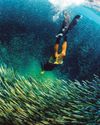
The Week Junior Science+Nature UK
What happens to the ocean if we take out all the fish?
Find out about the vital role fish play in sea life.
3 min |
Issue 75

The Week Junior Science+Nature UK
Cleopatra's lost tomb
You told us that historical mysteries capture your imaginations, so here's an ancient Egyptian riddle.
2 min |
Issue 75
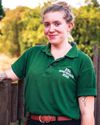
The Week Junior Science+Nature UK
Kate Speller
For our readers' issue, we met a zookeeper who works with big cats.
3 min |
Issue 75

The Week Junior Science+Nature UK
Voyager 1 turns back on
At more than 15 billion miles from Earth, the Voyager 1 spacecraft is the most distant human-made object in space.
1 min |
Issue 75
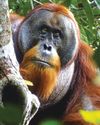
The Week Junior Science+Nature UK
Orangutan uses plants to heal wound
For the first time ever, a wild animal has been observed healing a wound using a plant as medicine.
1 min |
